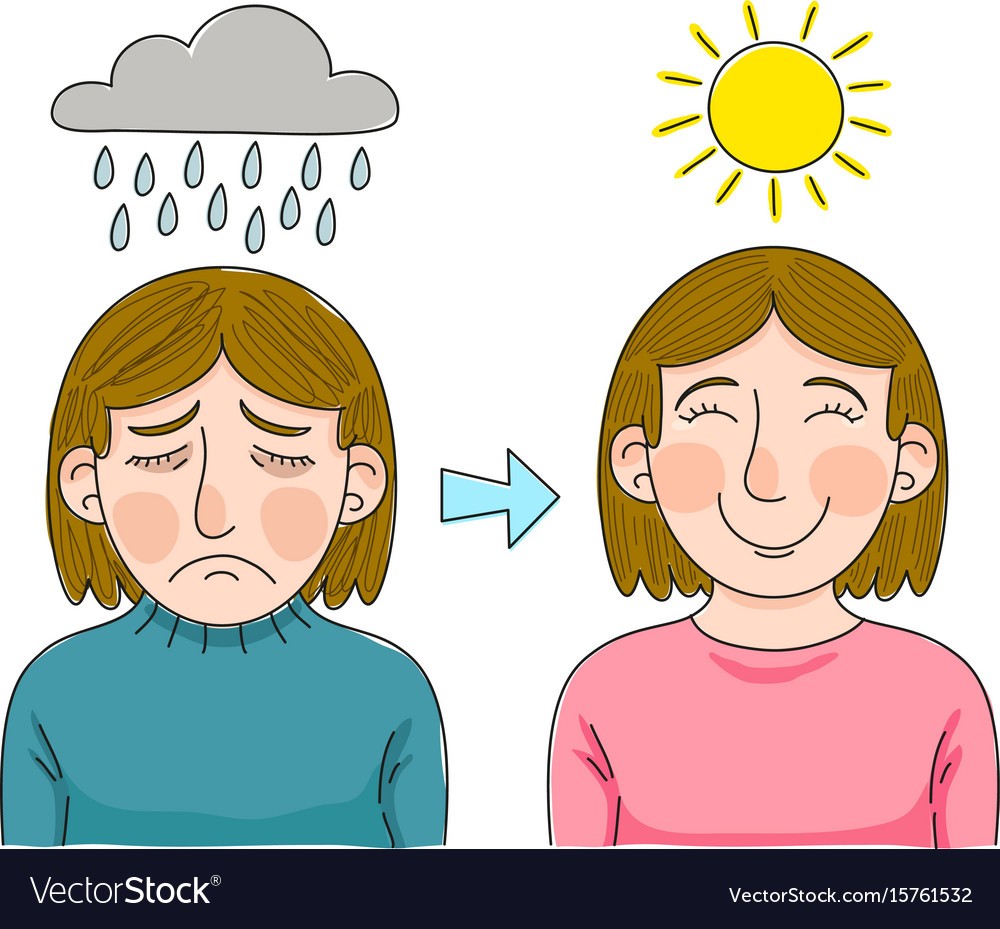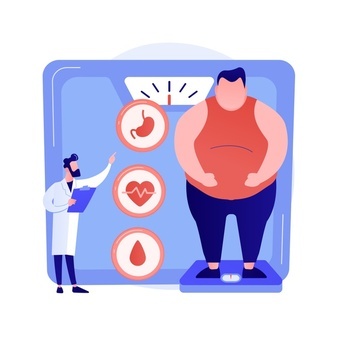10 tips to help overcome depression

When you’re dealing with depression, it isn’t a matter of simply flipping a switch and “snapping out of it,” yet there is something we can do about it. We now have proof through MRI scans that significant, measurable changes in brain chemistry and functioning can result from altering our thinking and behavior. A transformation won’t happen overnight, but these tips can help put you on the pathway to happiness.
The “Catch 22” of dealing with depression
Depression diminishes hope and motivation; it attacks your very soul by replacing your thoughts, feelings, and desires with apathy and despair. Without hope and motivation, there is little desire to fight depression because your mind tells you that nothing works anyway, so why try? This is not just on an emotional level, it occurs on a neurological and molecular level.
I know how this feels. When I was struggling with depression, my motivation dried up and disappeared along with my hope and happiness. I thought the best I could do with this new reality was to endure each miserable day. My thoughts cautioned me that there was no hope of escape, and that nothing I could do would make any difference.
These thoughts and feelings made it so difficult to do those things that could help me feel better. But fortunately there’s a difference between difficult and impossible. I learned that we have more power over depression than you might think. I learned that there is hope for healing.

The journey of a thousand miles begins with a single step
While healing from depression isn’t quick or easy, you do have more control that you realize. The secret is to start small and take a single step, followed by another step and another step. Taking the first step is usually the hardest, but one simple step can significantly boost your mood and energy for several hours, which can put you in a good place to take a second step. It is a process of following small positive steps day by day that lifts the heavy fog of depression to reveal the sunshine of hope and happiness. This process really works. It worked for me and it can work for you too.
Here are a few tips to begin taking those small simple steps:

Tip #1 Take a good quality B complex supplement each day
A deficiency in B vitamins has been shown to be linked to depression. Some people have seen a noticeable improvement in the way they feel mentally and emotionally, just by including a vitamin B supplement to their daily routine. Their brains just needed the right nutritional tools to work with.
There are eight B complex vitamins, but they’re not all called “Vitamin B” they have other names including:
- thiamin
- riboflavin
- niacin
- pantothenic acid
- biotin
- vitamin B6 (pyridoxine)
- folate (called folic acid when included in supplements)
- vitamin B12 (cyanocobalamin).
I don’t know why they name them that way, and I don’t know why there’s a vitamin B12 when there are only eight B vitamins, but I do know that vitamin B can make a difference. Deficiencies in vitamin B, particularly vitamins B6 and B12, have been shown in multiple studies to be linked to symptoms of depression.
As a word of caution, we need to recognize that not all supplements are the same quality. Low quality supplements aren’t very effective. There is a website called multivitamin guide that compares the effectiveness of 100 different vitamin brands which may be a useful guide in selecting a good quality supplement.

Tip #2 Listen to positive upbeat music
Listening to positive upbeat music is a simple, yet effective way to boost mood and motivation. According to neurologists, listening to music affects our emotions and “brings back the feeling of life when nothing else can.”
Research shows that different kinds of music can actually produce different kinds of emotions. Sad music can help offer a release of pent up negative emotions, while positive upbeat music helps move the brain into a more active state as brain waves actually synchronize somewhat to the pace of the music you’re listening to.
When we’re trying to invigorate brain function and activity, there’s nothing more powerful than music. Scientists have found that music stimulates more parts of the brain than any other human function.

Tip #3 Sing a song
While listening to music is an amazingly effective tool on its own, singing along with the music adds a whole new dimension and bumps up the power of healing exponentially.
Singing has been scientifically proven to lower stress, relieve anxiety, and elevate endorphins which make you feel uplifted and happy. It helps relax muscle tension and decreases the levels of the stress hormone cortisol in the blood stream and can help take your mind off the day’s troubles to boost your mood.
Participants in one study showed significant decreases in both anxiety and depression levels after one month of adding singing to their routine.
One possible reason for the incredible effectiveness of singing is a scientific discovery of a tiny organ in the ear called the sacculus, which responds to the frequencies created by singing. The response creates an immediate sense of pleasure, regardless of what the singing sounds like so you don’t have to have an amazing voice to feel the positive effects of singing.
So if you find yourself in a rough spot, sing along to an upbeat, positive song. Sing through one song three times or sing three different positive upbeat songs once. Allow the music to wash through you and feel the healing and invigorating effects immediately lifting mood and bringing relief. From my own experience, I can say that it really works.
Print out the lyrics so you can sing all the words and choose songs that have lyrics that have meaning to you personally. Here are a few suggested songs to help you create your own list: Roar by Katy Perry, Try Everything by Shakira, Waka Waka by Shakira, Brave by Sara Bareilles, Unwritten by Natasha Bedingfield, Fight Song by Rachel Platten, Happy by Pharrel Williams, Better When I’m Dancin’ by Meghan Trainor, Me Too by Meghan Trainor, On Top of the World by Imagine Dragons, Believer by Imagine Dragons, You Are Loved by Stars Go Dim, and This is Me by Justin Paul & Benj Pasek sung by Keala Settle.

Tip #4 Go for a walk
It sounds like a paradox to ask a person who may struggle finding the motivation to get out of bed to add walking to their daily routine, but studies show that exercise actually helps you feel more energized and less fatigued.
If we want to have more energy, then we have to move more.
Virtually any form of exercise can act as a stress reliever. It does wonderful things to help our emotional well-being and is one of the most powerful tools in your recovery arsenal. Exercise increases the production of endorphins, which are the brain’s feel-good neurotransmitters.
Walking also gives us a two-for-one benefit, helping not only increase energy but also providing many of the same benefits of mediation, since walking is a form of moving meditation.
Any type of exercise, including walking, helping us calm down and distracts us from our problems. It improves mood, helps us relax and improves quality of sleep. So if you’re feeling depressed or discouraged, it might be a good idea to pause and go for a walk.

Tip #5 Make healthy food choices
There is a strong correlation between the way we eat and the way we feel. If we want to feel good, it’s important to become aware of the way we eat and drink.
Your brain functions best when you’re eating high-quality foods that contain lots of vitamins, minerals, and antioxidants nourishes the brain and protects it from oxidative stress.
Diets high in refined sugars, on the other hand, are harmful to the brain. In addition to worsening your body’s regulation of insulin, they also promote inflammation and oxidative stress. Multiple studies have found a correlation between a diet high in refined sugars and impaired brain function — and even a worsening of symptoms of mood disorders, such as depression.
Many people have seen tremendous physical, emotional and mental improvements simply by altering their diets from sugary and nutritionally deficient processed foods to a diet rich with whole grains, organic fruits and vegetables, and quality protein.

Tip #6 Drink more water
Drinking water is a simple, effective, but often overlooked tool to improve mental and emotional health. Studies show that even mild dehydration has been shown to negatively affect brain structure and function, negatively impact mood, and trigger fatigue.
A healthy brain is made up of about 73 percent water, so adequate hydration is a big deal. Even a little dehydration, as little as one percent begins to have negative effects on mood and brain function.
Improve mental and emotional health by including 8 glasses of water in your daily diet, and by water I mean actual water, not soda, diet soda, coffee, or tea. Studies have shown that caffeine consumption can lead to increased anxiety, depression and also increases the need for anxiety medication.

Tip #7 Connect with nature
Spending time outside in nature is good for the body and the mind. It helps distract us from problems and just helps us feel good.
Research in a growing scientific field called ecotherapy has shown a strong connection between time spent in nature and reduced stress, anxiety, and depression.
In a 2015 study, researchers compared brain activity between a group who spent 90 minutes in nature and a control group. They found that a group who did a nature walk had significantly lower activity in the prefrontal cortex, a region or the brain that is active during rumination. (Rumination is when people experience a continuous loop of negative thoughts.)
Calming nature sounds and even outdoor silence can lower blood pressure and levels of the stress hormone cortisol, which calms the body’s fight-or-flight response.
So go outside and make a connection with nature. If the weather permits, take off your shoes and feel the grass or sand under your feet. Feel the warmth of the sun and the coolness of the breeze and feel your body moving as you walk. Hear the birds, or the waves, or the rustle of the grass in the wind. Smell the flowers and the trees and see the beauty of nature around you. Enjoy a sensory experience in nature and feel its healing effects.

Tip #8 Pet the dog
If you’re feeling anxious, stressed, depressed or lonely, one thing that might help is to spend some time petting a dog or cat.
Science shows that playing with or petting an animal can reduce stress and can also help us reduce feelings of isolation and help us feel more connected.
Petting a dog or cat increases the activity in the “reward center” of the brain which lowers stress and increases feelings of happiness. It also decreases production of cortisol, which is a stress hormone, so it works in multiple ways to help you calm down and feel better.

Tip #9 Serve someone else
Depression and anxiety tend to make a person retreat inward. Helping other people can help bring us outside ourselves. It can also help distract us from our own problems and think about something else.
Studies have shown that people who help others have lowered levels of depression and anxiety. In fact, in the research study, service was more effective in making a positive difference in the way participants felt about themselves than making an effort to pamper themselves, or creating self-esteem goals.

Tip #10 Connect with friends
We live in a digital age where we can be tempted to replace person to person contact with phones and computers, especially if we’re feeling vulnerable. But humans are social creatures, we crave feeling supported, valued and connected. Studies show that being socially connected increases happiness and leads to better health and a longer life. It helps overcome feelings of loneliness and isolation.
Make a list of the people you can turn to. These are people that you trust to support you and make an effort to contact them regularly. Reach out to them and ask for specific kinds of help. Remember, your friends can’t read your mind and it’s not fair to expect them to. And if you’re working on a goal, such as trying to overcome anxiety and depression, having a friend to report to and keep you accountable can make all the difference in the world. The likelihood of getting new habits to stick, of following through on your assignments and reaching goals is remarkably higher when someone else is aware or your goal or assignment and you set a time to report back to someone on your progress.
You can do this!
While healing from depression isn’t quick or easy, you do have more control that you realize. The secret is to start small and take a single step, followed by another step and another step. This process really works. It worked for me and it can work for you too.
If you’d like to see a first hand account of the transformation this process can bring please check out the link to “Crushed.” If you’d like access to a simple step by step coaching plan created by someone with experience overcoming depression, please check out the link to “30 Days to Alleviate Depression.”
Reference:https://hopeforhealingfoundation.org/tips-to-overcome-depression/






